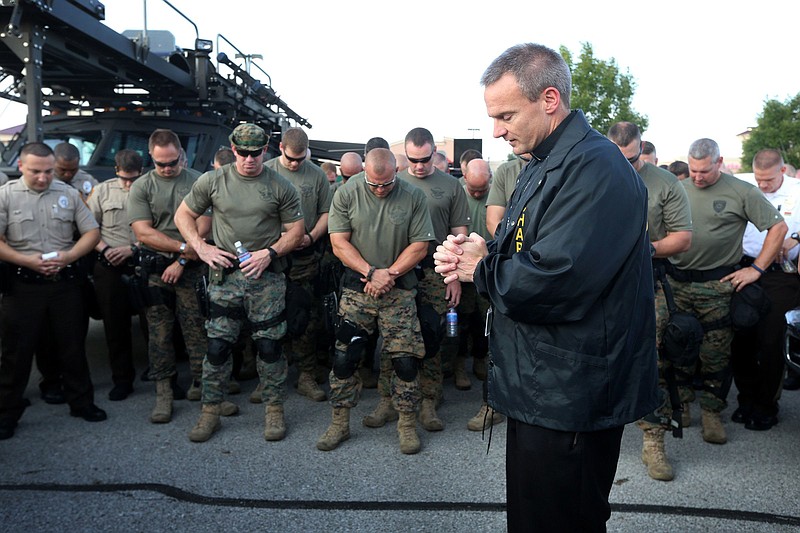ST. LOUIS (AP) - The unrest in Ferguson over the past three months has led many police officers to seek counsel with chaplains, who say frustrated officers welcome the opportunity to vent.
The Aug. 9 fatal shooting of Michael Brown by Ferguson police officer Darren Wilson has led to protests in St. Louis County. A grand jury is considering whether Wilson should be charged.
Like police officers working the protests, chaplains with the county's police department say they have worked longer hours since the shooting, the St. Louis Post-Dispatch reported. The ministers say they expect their hours to increase with the impending grand jury announcement.
The 23 chaplains in the county police department come from several denominations. They have provided a total of 307 volunteer hours in Ferguson since August.
"Every officer has something different," said the program's coordinator, Rabbi Mark Shook. "Some with the frustration with the disruption of the family schedule. Some of it is out and out anger at politicians. There's a sense that from the very outset no one was taking any notice of objects being hurtled at them, at officers being injured on the line, and that they resent the discounting of that information."
The Rev. Eileen Norman, a minister with Capernaum Outreach Ministries, has served as a police chaplain for more than 20 years. She emphasized that officers are concerned about the safety and welfare of the people in the areas they serve, "contrary to the impression that the Ferguson incident has put into the minds of a lot of people."
"They are also concerned about the safety of their partners and co-workers, they are concerned for their own safety, and they are concerned about getting home to the people who love them at the end of their shifts," she said.
The Rev. Michael Boehm said he's been impressed with how officers have handled being in the public eye during the unrest. He is the vicar of clergy for the St. Louis Archdiocese and also serves as a police chaplain.
"I think it's the untold story of the whole thing," he said. "You can imagine the stress of being in the limelight all the time, at putting up with being berated to their faces. They just take it."
Spokesman Shawn McGuire of the St. Louis County Police Department said he expects officers to seek the chaplains out for support in the days following the grand jury's decision.

